Writing about uncomfortable truths: Pakistan’s army, Nepali justice and Indian beef
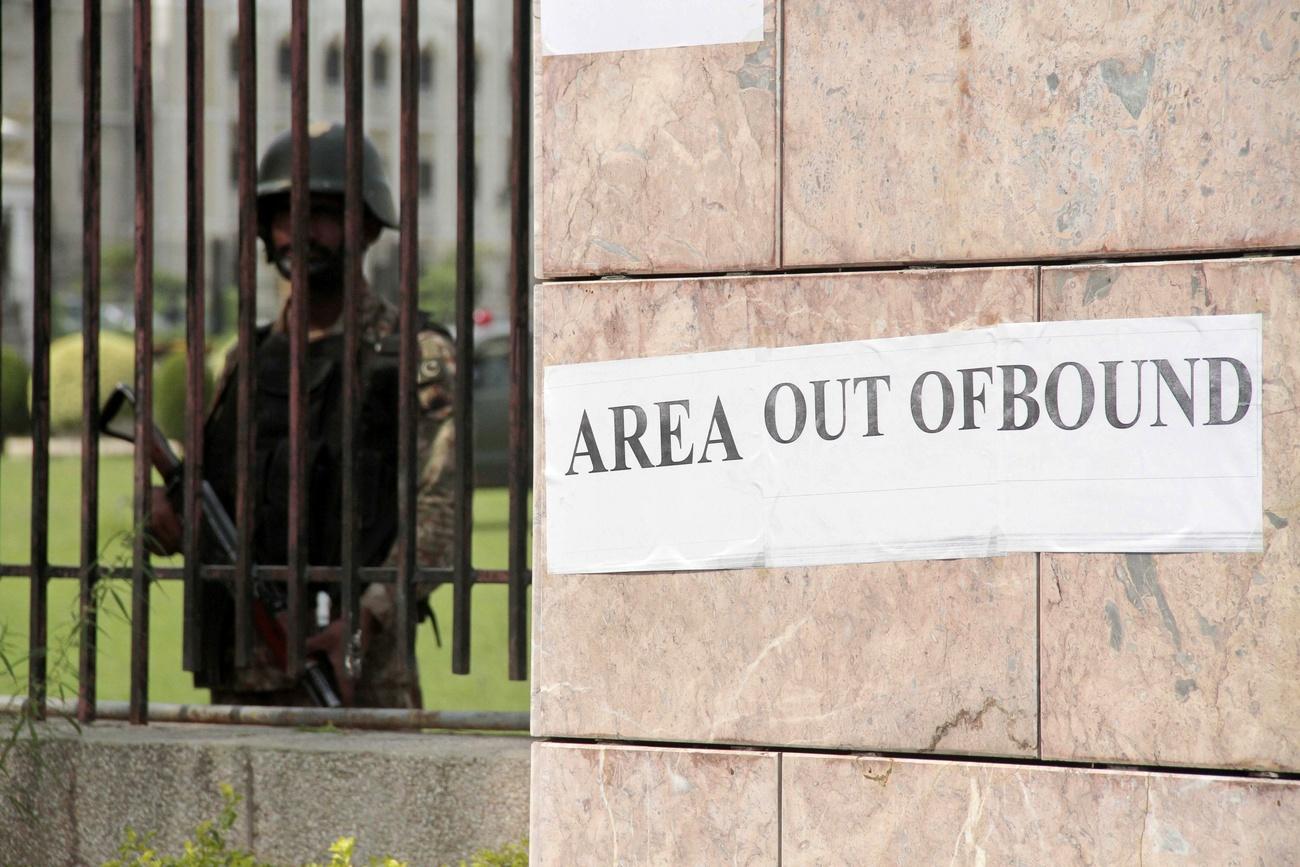
Three journalists from South Asia share their experiences of covering stories that make uncomfortable reading for many of their compatriots.
Sarah Eleazar from Pakistan, Aditya Adhikari from Nepal and Rohini Mohan from India were recently invited to Switzerland’s capital because their stories were among the 39 of 924 submissions nominated for the True Story AwardExternal link. It was the world’s first global journalism prize, given in Bern as part of the Reportagen Festival. The goal of the prize is “to supplement and broaden the predominantly Western view of the world with other perspectives”, according to its organisers.
While in Bern, the three journalists shared what it’s like to work on such difficult – and sometimes dangerous – subjects.
Journalist Sarah Eleazar’s article “The Anatomy of a Political MovementExternal link” covers an emerging protest movement in the former federally administered tribal areas (FATA) in northwestern Pakistan. The Pashtun Tahafuz Movement (PTM) openly citicises the Pakistani army and blames it for extrajudicial killings and enforced disappearances carried out under the name of the country’s domestic war on terror.
“The ones responsible for terrorism are the ones in uniform,” was the rallying cry of protesters at a demonstration in Lahore in April 2018. Eleazar’s coverage of the rally aimed to portray the challenges of holding the powerful army to account.
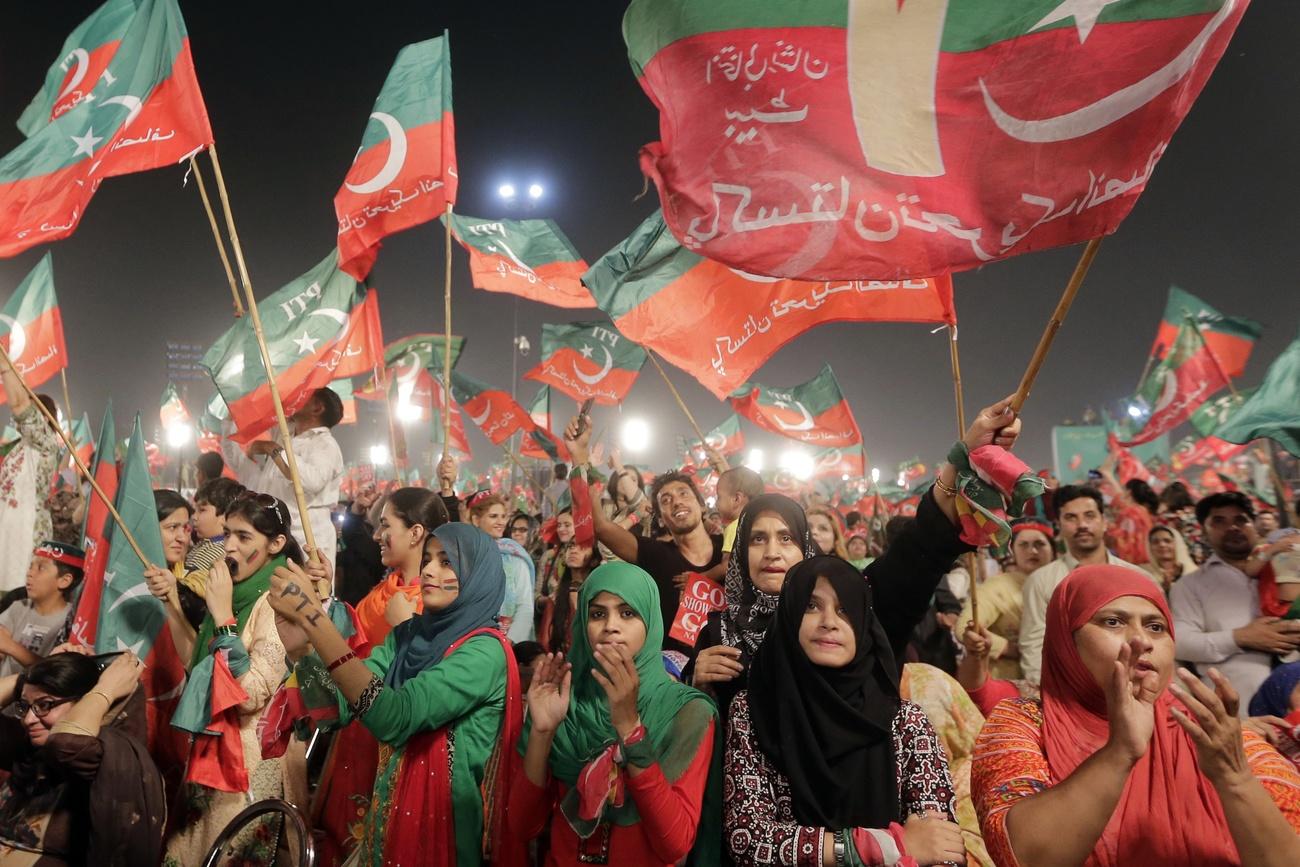
swissinfo.ch: Why is criticism of the army an uncomfortable subject in Pakistan?
Sarah Eleazar: Pakistan is a hyper-nationalist country. You need hyper-nationalism to legitimise the presence of such a huge army and military operations within the country. Thousands of people have been killed on both sides, but for what? The Taliban is back and a lot of it has to do with the deal made in Kabul. What was the war on terror for, then?
swissinfo.ch: Why did you choose to cover the Pashtun Tahafuz Movement?
Sarah Eleazar: The PTM was challenging the established state narrative on the war on terror. They were talking about the problems people were facing in the region because of the way the war on terror was fought there. What they are saying is a bitter pill for the state to swallow.
Everyone agrees the FATA was turned into a breeding ground for militants to fight against the Soviets in Afghanistan in the 1980s. PTM uses social media to share video and photo evidence that the army has protected the Taliban in many places.
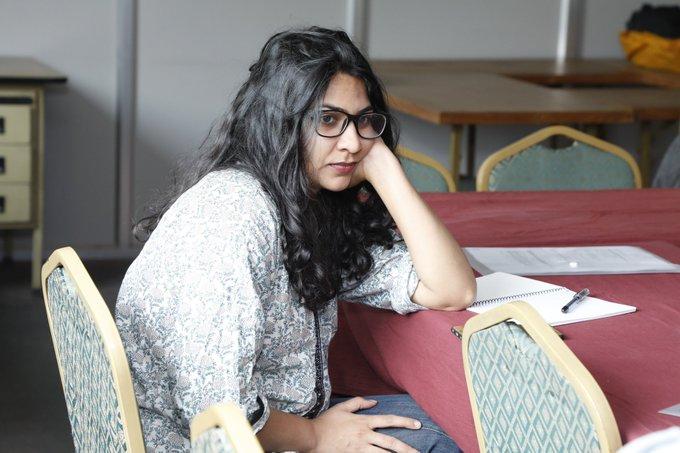
swissinfo.ch: What are the risks of covering such a movement?
Sarah Eleazar: The metaphoric use of the word terrorism to describe the extraordinary measures adopted to fight the war on terror are not acceptable to the state. The military has lost a lot of soldiers in the war against terrorism and it is a blow to their morale to see such a massive movement emerge and hold them responsible for loss of rights in their areas.
In the last few weeks, several journalists have been arrested for reporting on the PTM. It is dangerous to talk about them on social media as everyone is tracked.
We saw the state repression happening in front of our own eyes while covering the PTM rally in Lahore. The police went to the hotels where protesters were staying and picked them up. All this was being shared on Facebook live by PTM supporters.
swissinfo.ch: How was your story received in Pakistan?
Sarah Eleazar: The article was shared primarily by people sympathetic to the PTM but it didn’t get much attention otherwise. Few people read longform articles in Pakistan.
As a journalist I have faced online threats and harassment but for some reason this story did not generate a lot of backlash. I think it is because the state does not want to engage with such an article as it would draw attention and make everyone want to read it.
Aditya Adhikari’s article “The Death of a JournalistExternal link” focuses on the issue of accountability for human rights violations committed during Nepal’s civil war that lasted from 1996 to 2006. Pushed by human rights activists, the government passed transitional justice legislation to prosecute premeditated acts of violence carried out by the army and Maoist rebels. However, in the zeal to secure convictions, only those who committed the killings were hauled to court while the role of leaders who masterminded the campaigns was overlooked.
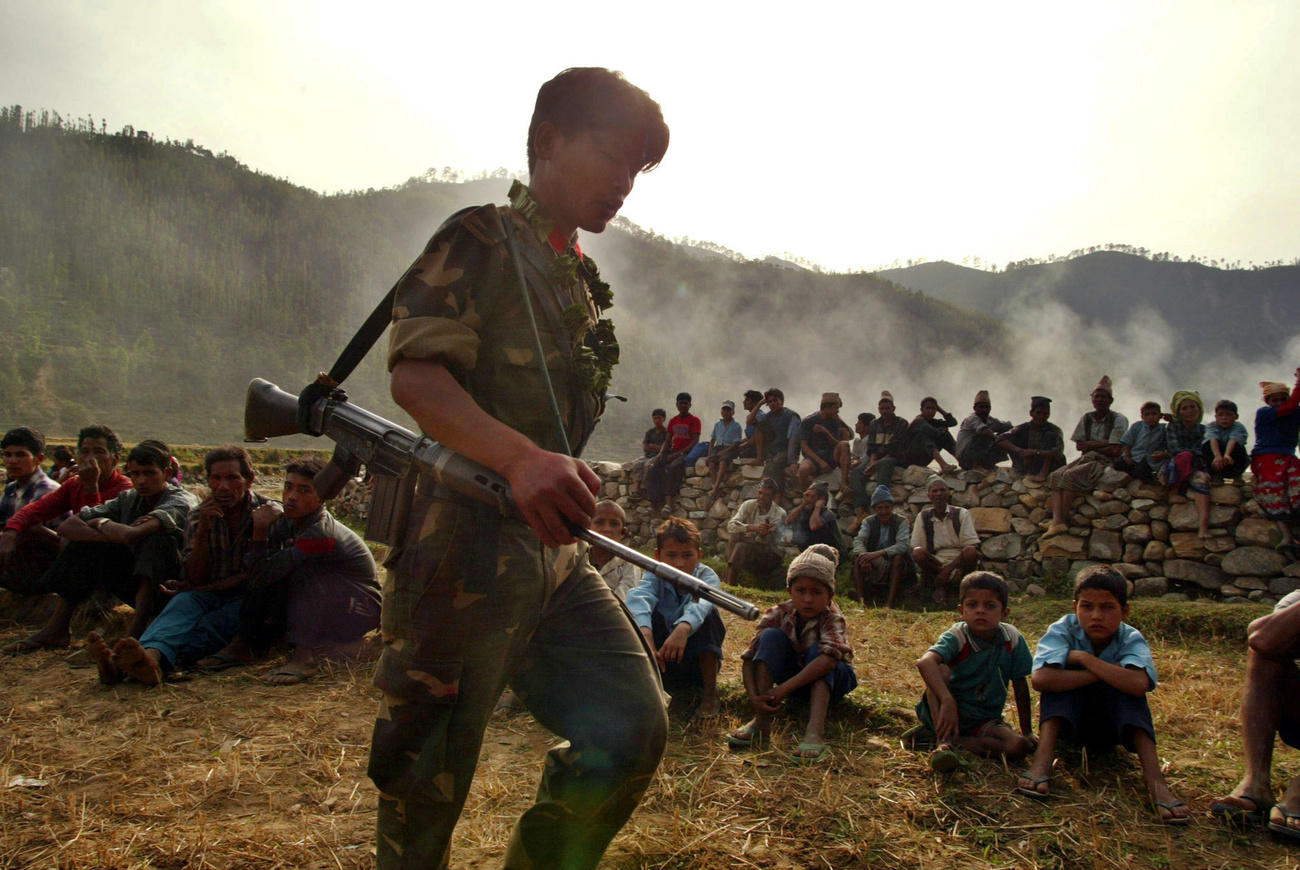
swissinfo.ch: Why did you write an article about a journalist being killed during the civil war?
Aditya Adhikari: The person who was killed was a journalist but that is not why I wrote the article. I wanted to criticise the transitional justice process in Nepal after the civil war. On one side you have the state that wants to block all prosecutions and on the other you have human rights activists that want to expand prosecutions as much as possible.
I started off being on the side of the latter but over time I grew increasingly uncomfortable about the manner in which the prosecutions were being pushed.
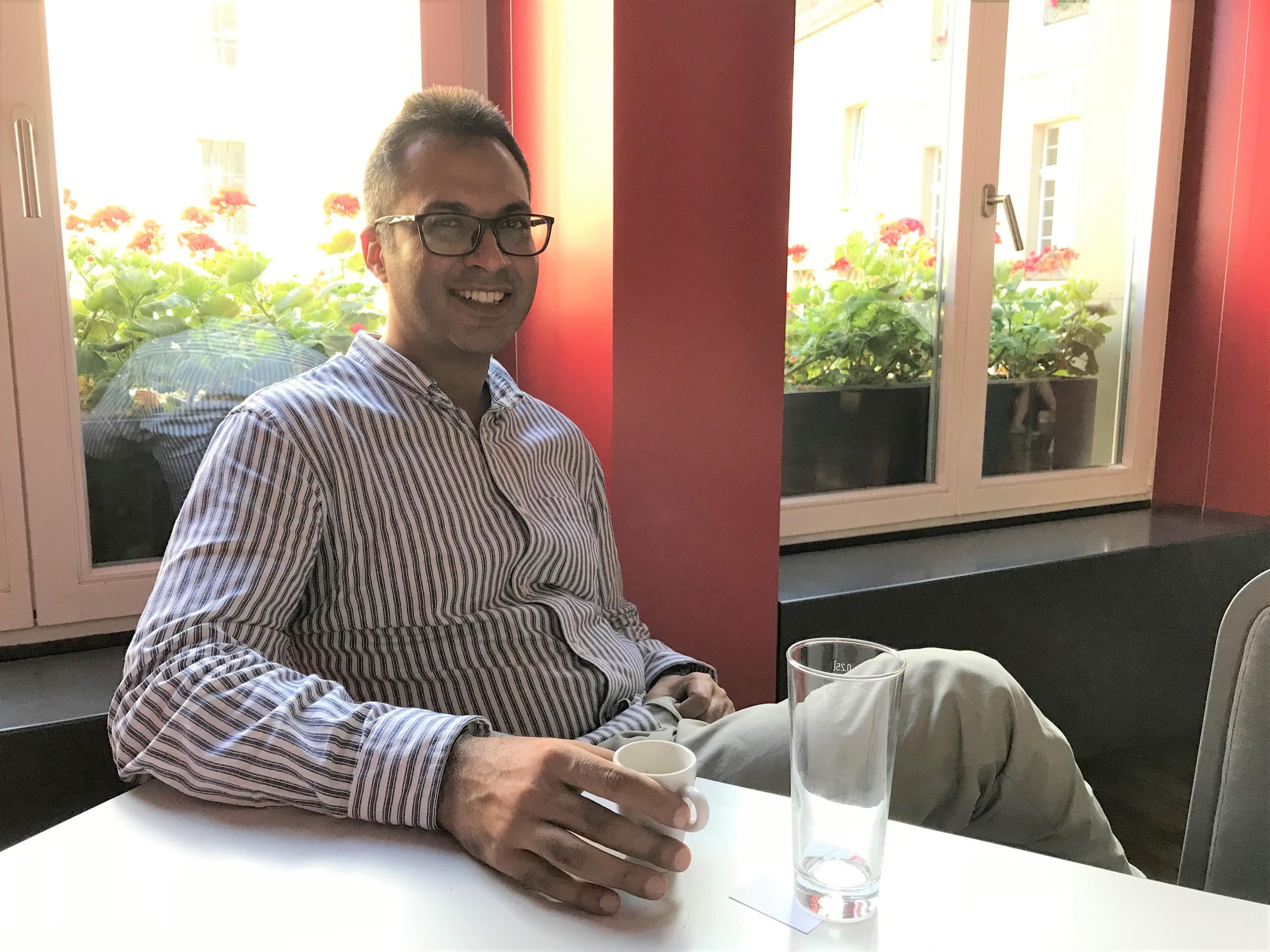
swissinfo.ch: What made you uncomfortable about the process?
Aditya Adhikari: Those who committed the crimes were junior fighters and little consideration was being given to who gave them orders. This suited certain politicians who helped prosecute low-level combatants and remained untouched themselves.
There is also a tendency to treat every individual crime committed during the civil war like it was done during peacetime. I felt that there can be no reconciliation if killings were treated like ordinary murders. You need to identify the mentalities on both sides that enabled certain kinds of human rights violations to take place.
swissinfo.ch: How was the article received in Nepal?
Aditya Adhikari: It is the kind of article that only a small circle of people would be interested in. Most people are set in their ways. I antagonised a lot of my friends in the human rights field over the years because of the line I was taking. There are a few people I don’t talk to anymore at all.
Journalist Rohini Mohan’s article “A Template for HateExternal link” probes an incident in which a Muslim man was killed by a Hindu mob over rumours that his family had killed and eaten a calf. She follows the legal case against the murderers as well as the impact it has had on the victims, the accused, the entire village and Indian society.
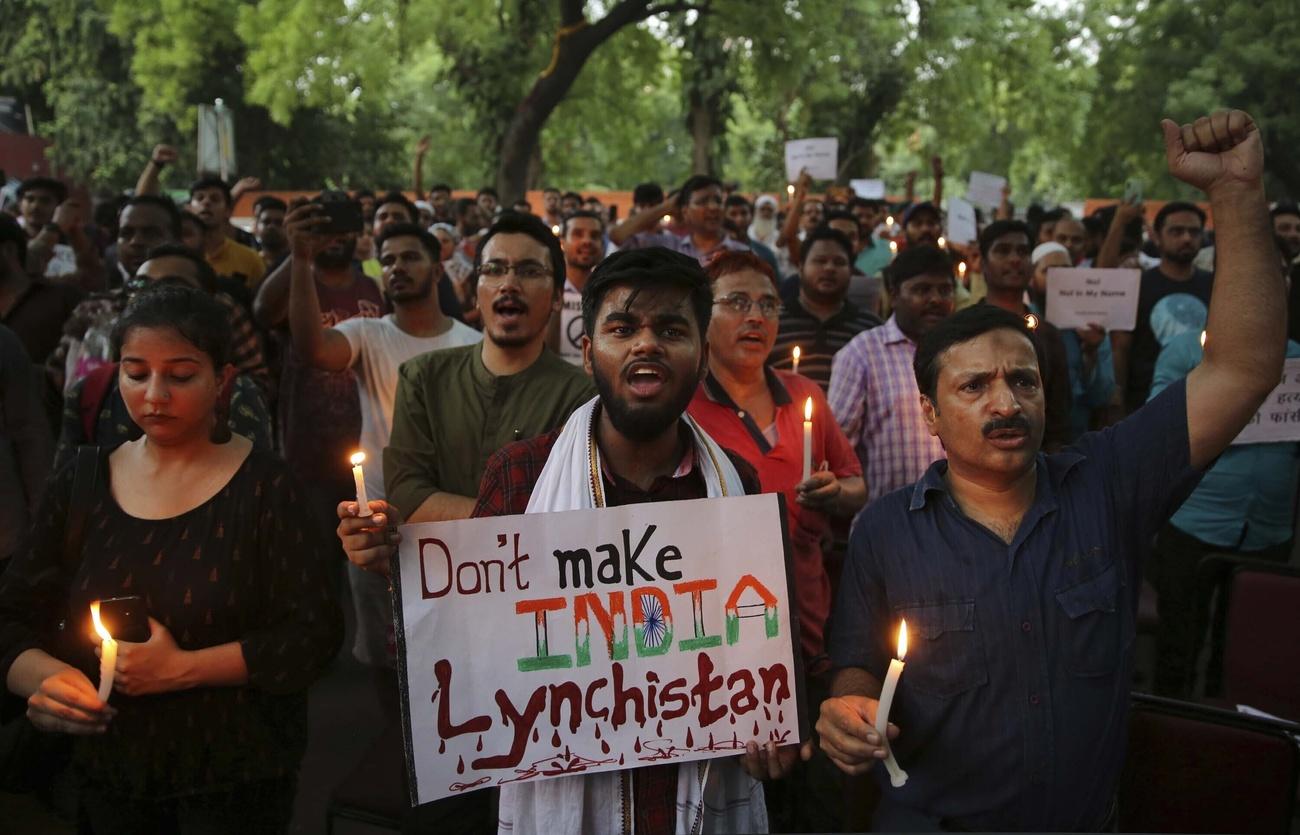
swissinfo.ch: Why did you write about the lynching incident?
Rohini Mohan: The case provided a template for committing violence and justifying it legally. It is a demonstration of Hindu power and how a Muslim community can be silenced. I tried to connect the dots between the beef issue, identity politics, economics and the law.
swissinfo.ch: What was the reaction to your article?
Rohini Mohan: There were people who felt that India’s name was being damaged abroad and who had a problem with my article.
I spoke to the family of the accused which is something that is seldom done. Some of the roots of frustration among upper-caste Hindu communities also came out in my article. This surprised the detractors. However, we as journalists are not writing for detractors but for the fence-sitters who think that such acts are okay because they do not have all the details.

swissinfo.ch: What effect has the media coverage of beef-related lynchings had on the public?
Even people who are against eating beef are starting to think that it is a grotesque reaction. More people are thinking about what constitutes a real Hindu. People who never thought about Muslims or low-caste Dalits do so now as if they have to make up their minds whether to hate them or not. I think nobody falls for beef politics anymore but the division in society has been created.
swissinfo.ch: How has the article affected you?
Rohini Mohan: People are always asking me where I stand on the beef issue. It is an exhausting conversation. I would not say that Modi (the Indian prime minister) is directly responsible for the killing. However, he and his party have created the conditions in which this has happened. Nobody bothers about this nuance anymore or maybe they never did.
swissinfo.ch: Is there a backlash against the media for shining the spotlight on the issue?
Rohini Mohan: A lot of the advertising revenue for newspapers and TV channels comes directly from the government. Many media companies have a lot to lose and they put pressure on journalists. Those who write in English are quite cushioned but journalists who write in regional languages that are read by many people put themselves in great danger.
Harassment, exhaustion that comes from constantly being called a liar, constantly being attacked on social media, legal defamation cases, and financial stress exist. Despite all this, I think Indian journalists are doing a good job.
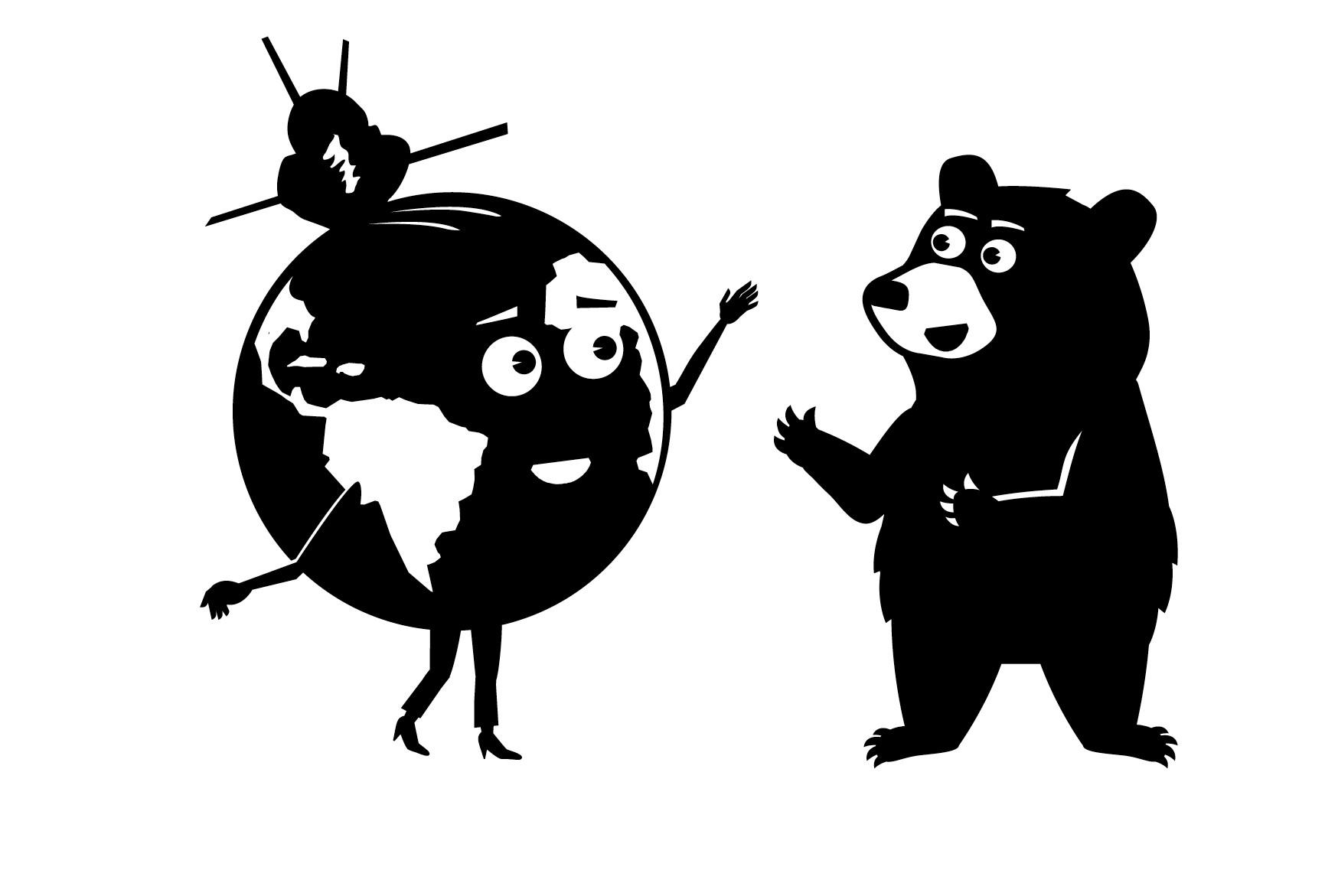
More
Watch: storytelling around the world

In compliance with the JTI standards
More: SWI swissinfo.ch certified by the Journalism Trust Initiative

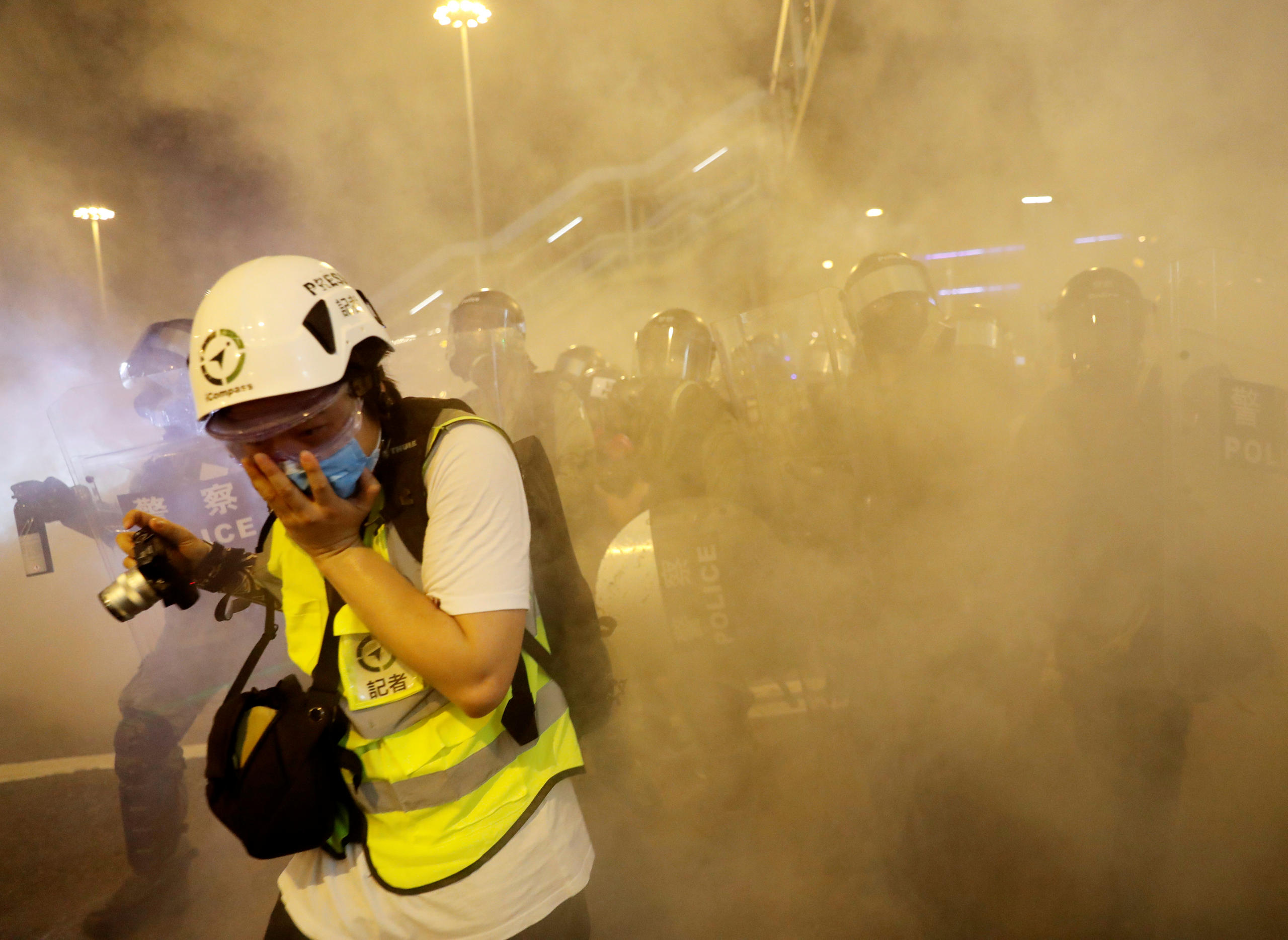
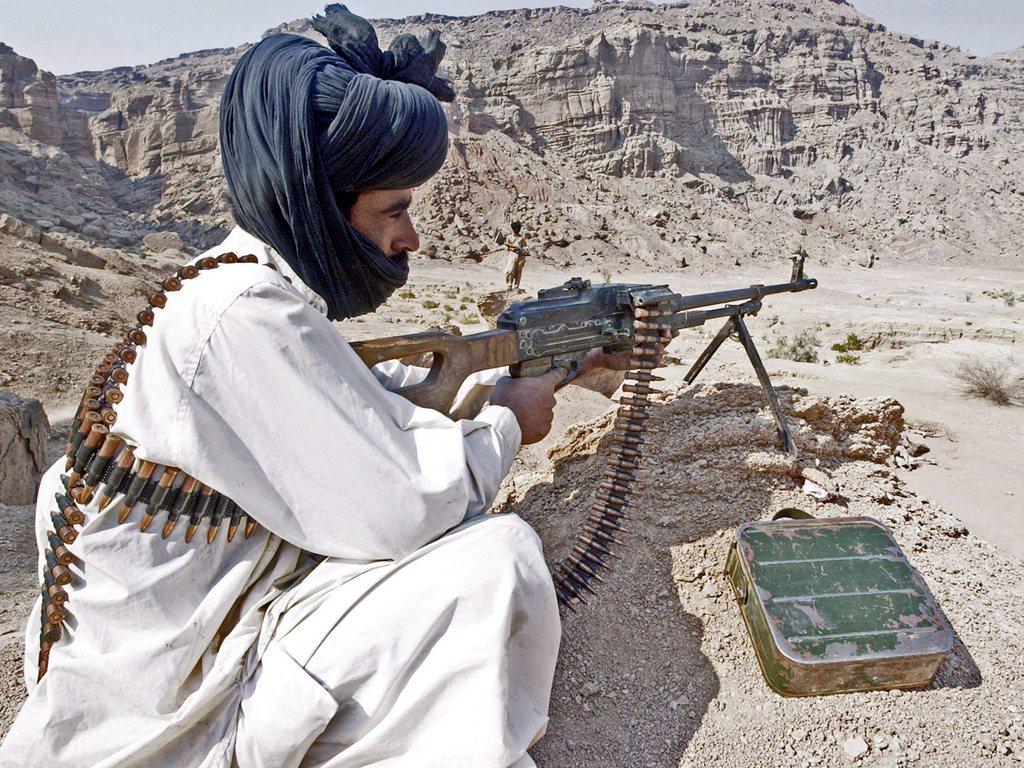
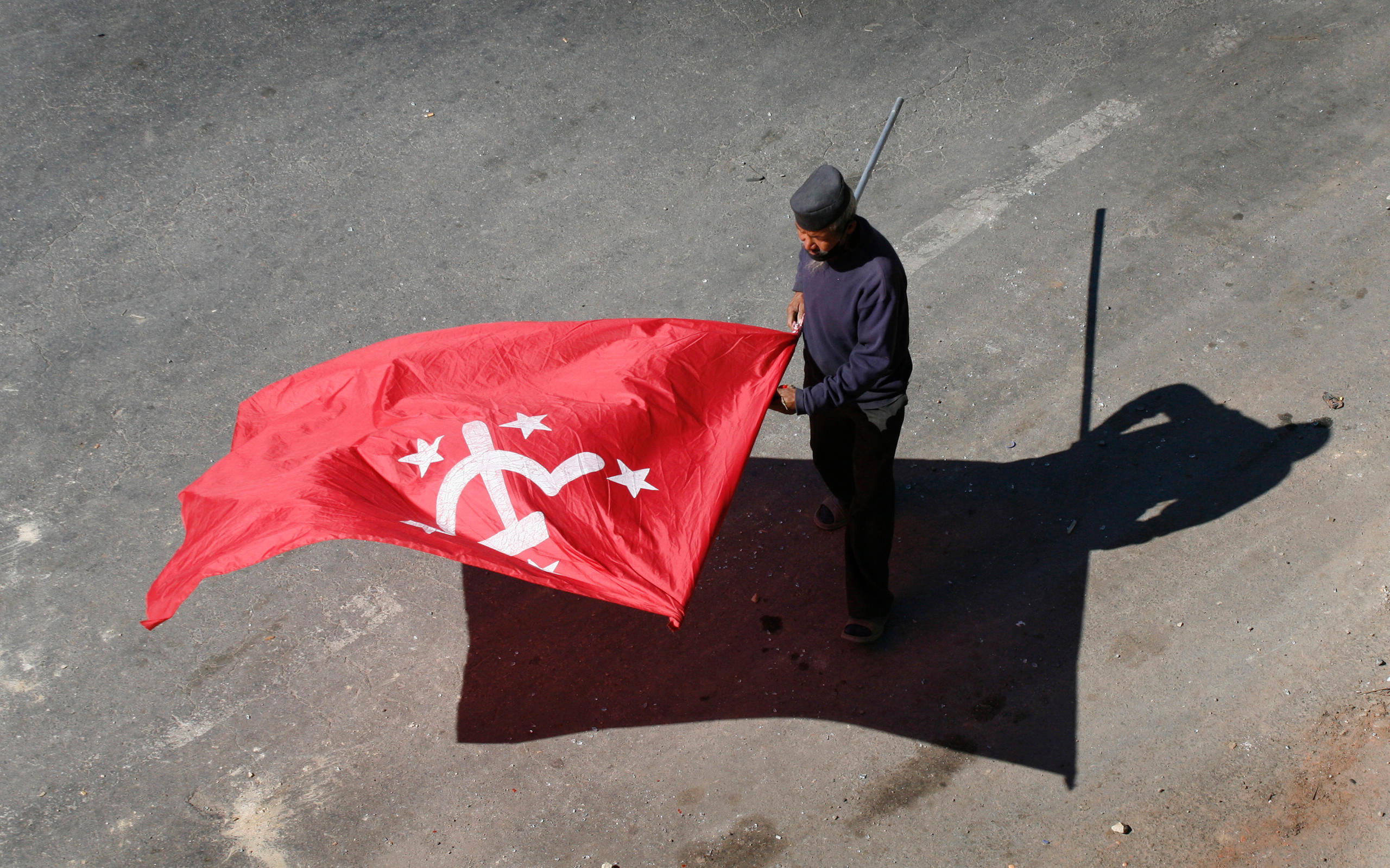
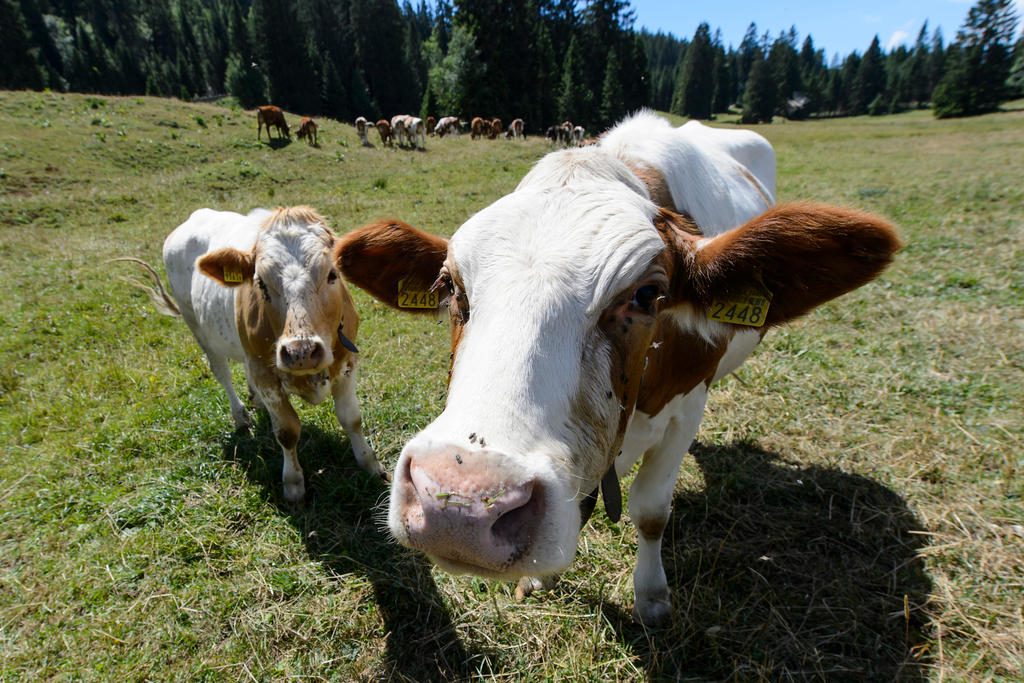
You can find an overview of ongoing debates with our journalists here. Please join us!
If you want to start a conversation about a topic raised in this article or want to report factual errors, email us at english@swissinfo.ch.